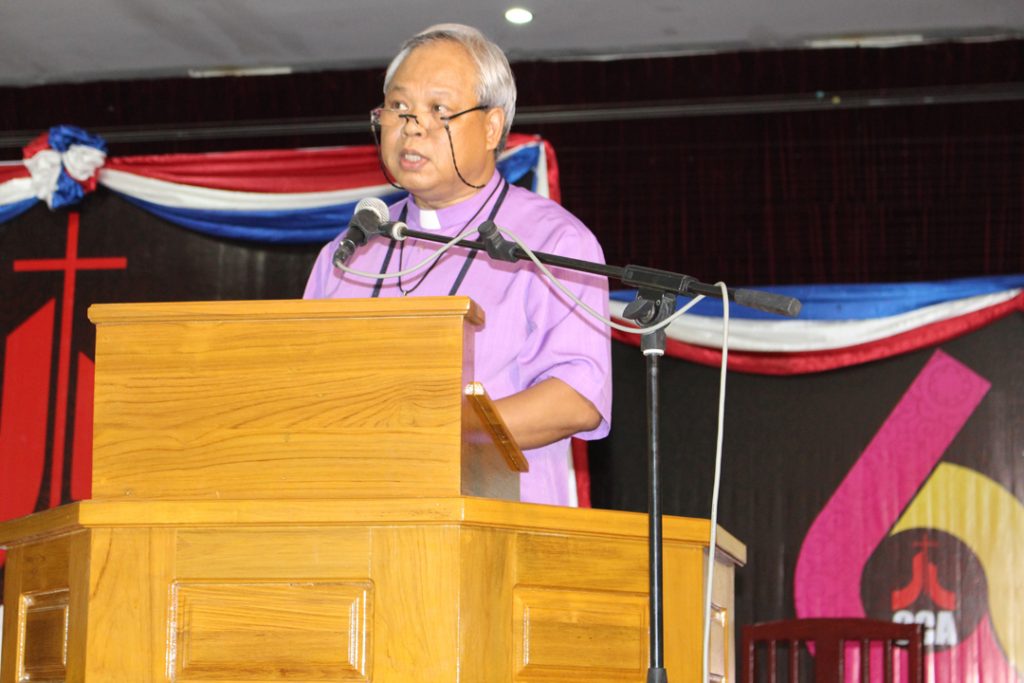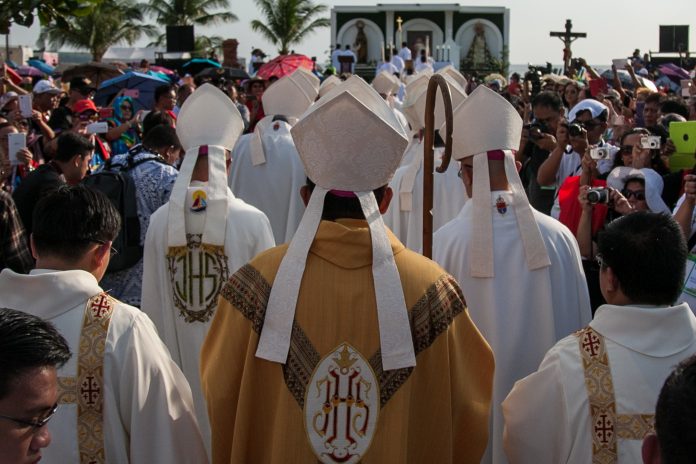The National Council of Churches in the Philippines supported the call for prayers of the Catholic bishops’ conference as a controversial anti-terrorism law took effect in the country last week.
“It is the moral duty and prophetic task of every Christian, especially church leaders, to announce and denounce the ills of society,” said Bishop Reuel Norman O. Marigza.
Bishop Marigza, general secretary of the council, said they “welcome” the pastoral letter of the Catholic bishops exhorting the faithful to pray for the country.
“This is what the prophets of old and Jesus Christ did during their respective times. It also helps our respective flocks in their reflection and discernment,” said the Protestant church leader.
On Sunday, July 12, the country’s Catholic bishops came out strongly against the administration of President Rodrigo Duterte, warning against the country’s “bleak political landscape”.
In a two-page pastoral letter, the church leaders lamented a litany of issues besetting the country including the spate of drug-related killings, the red-tagging and alleged intimidation of government critics.
The bishops also decried the closure of broadcast network ABS-CBN for failing to get a franchise from the government and the alleged “harassment” of media critics.
“Is it not evident to us how this pattern of intimidation creates an atmosphere detrimental to the freedom of expression in our country?” the bishops said.
While saying that a semblance of democracy is still in place, the bishops that Filipinos “are already like the proverbial frog swimming in a pot of slowly boiling water.”
The church leaders particularly condemned the controversial anti-terrorism law, which took effect on July 11.
The bishops said they are still in “disbelief” about the manner in which the measure was “fast-tracked.”

Support for the bishops
In their statement, the Protestant council reacted to a statement made by Duterte’s counsel, Salvador Panelo, who accused church leaders of violating the principle of separation of Church and State.
“To paraphrase what Bishop Broderick Pabillo (of Manila) stated, as citizens and rights holders, members of the clergy also have rights to call to task the government, the duty bearers, if they are remiss in their duties and responsibilities to the people,” said Bishop Marigza.
Various groups have voiced their support for the Catholic bishops’ statement.
Australian nun Patricia Fox, who was deported by the Philippine government in 2018 for alleged involvement in partisan political activities, described the bishops’ statement as “good.”
“But I would like [the bishops] to call religious and church people to join those who are expressing their calls for justice in different ways,” said the nun.
“Keep thinking of how Jesus was angry when the Temple, where political, economic, and religious power resided, was being corrupted. He physically upturned the tables,” she added.
“Think Pope Francis called on religious to ‘wake up the world’ and be prophets and not just pretend to be prophets,” said the nun.
Human rights activist Cristina Palabay expressed hope that the bishops’ statement “can help enable the discernment of the faithful to pray, act, and stand to uphold human rights.”
“We call on the Catholic Church to lend its prophetic voice for the poor amid authoritarianism and exploitation,” said Palabay of rights group Karapatan.
Renato Reyes of the New Patriotic Alliance said “religious leaders should be with their flock who have already gone ahead and mobilized despite the pandemic.”
“Religious leaders are in a position to encourage more of their flock to be active in social issues. Let churches be venues to educate the public,” he said.
“Let church bells ring out as a sign of resistance and help in galvanizing national unity against tyranny,” added Reyes.
Mark Saludes contributed to this report.









